After a Zombie Apocalypse, Here Are 9 Keys to Rebuilding a Civilization
In AMC's "The Walking Dead" (which airs Sundays at 9 p.m. EST/8 p.m. CST), now in its ninth season, characters have survived years after the zombie apocalypse began and are now working to expand their simple communities into a stronger, more capable and civilized society.
"You're gonna be evidence that we're making a civilization," Rick Grimes, one of the show's main characters, told Negan, a villain Rick captured, at the end of season 8. "Something like what we had. Something we're gonna get back." [9 Reasons We Have an Undying Interest in the Undead]
But what does it take to build a civilization from the ground up? Live Science spoke with experts in early human history to get their thoughts on the keys to building a sustainable civilization.
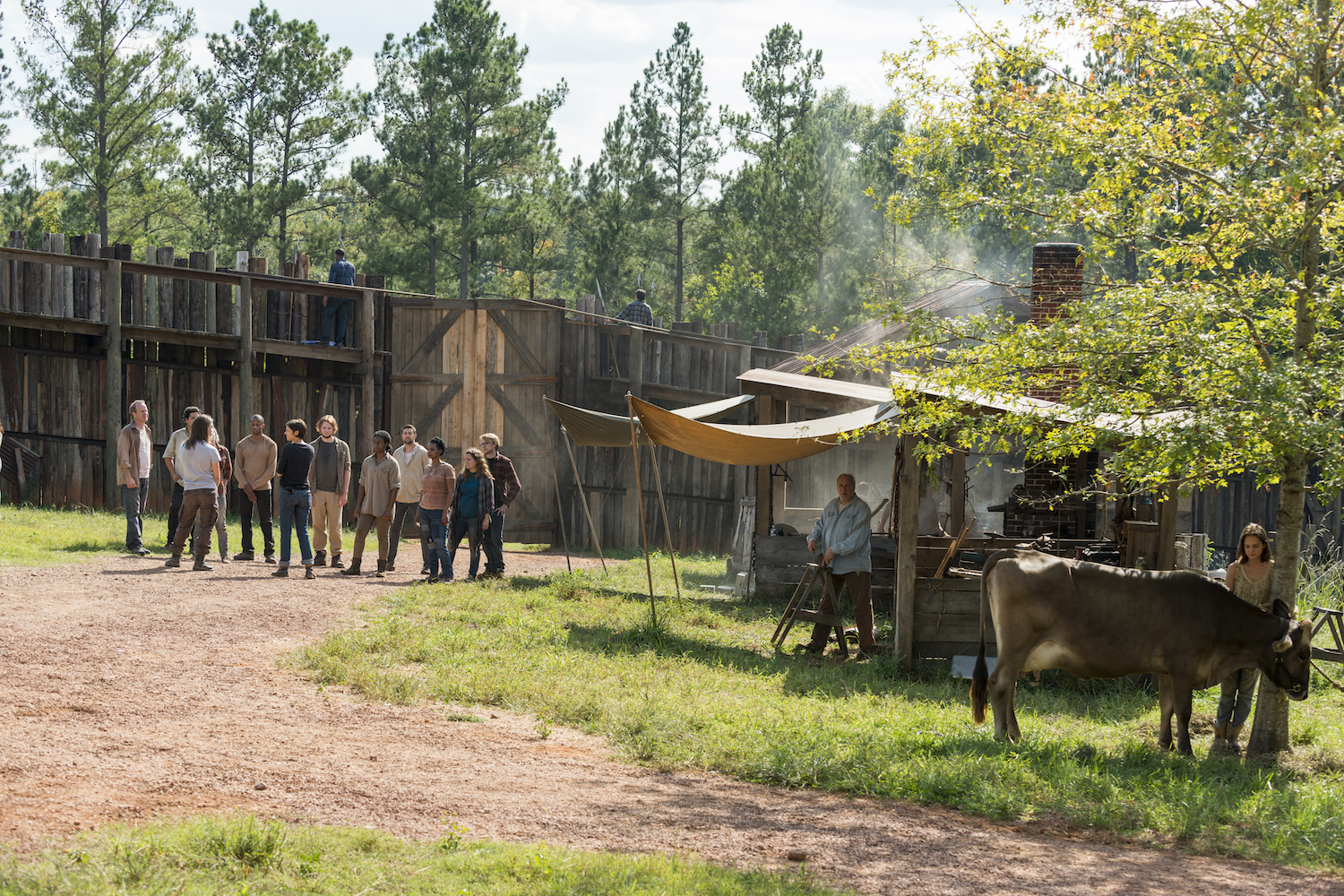
Power in numbers
A civilization is impossible without people — that much seems obvious. But the key is having enough people, and the right mix of people.
"It's unlikely that a group of 10 people, for example, will be successful at colonizing," said Terry Hunt, an archaeologist and dean of the University of Arizona Honors College. Hunt is a leading expert on the human history of Easter Island and early civilizations in the Pacific Islands.
Demography simulations suggest that groups of 20 or more have a better chance at long-term survival, Hunt said. That's because having more people minimizes the chance of a skewed sex ratio and prevents the first generation from being too closely related to one another.
But besides wanting a diverse group to avoid inbreeding, the skills people bring to the table should also be diverse. (Let's face it, brain-eating will get a society only so far.)
Sign up for the Live Science daily newsletter now
Get the world’s most fascinating discoveries delivered straight to your inbox.
"If I were in charge of one of those isolated communities surrounded by timber palisades and sheet metal, I would try to keep as many people with diverse knowledge around as possible," said Steven Kuhn, an anthropologist at the University of Arizona who studies ancient civilizations in the Mediterranean. "If I had three farmers, I would try to swap one for a potter or a weaver or a chemist."
Protect yourself
Protection from the elements, and zombies in the case of "The Walking Dead," is a basic need for human survival. Without shelter, there would be no hope of building a civilization. But as communities expand, people need more than a roof and walls — they need barricades and protection.
"Part of survival would be not getting invaded by another group of people who just come and take everything and leave you for dead," Hunt said. Indeed, that's been a consistent and major challenge throughout the past seasons of "The Walking Dead."
Fortifying the settlement not only prepares the community for conflict but may also prevent conflict altogether by displaying the strength of the community.
For example, the people of Easter Island used their enormous ancient statuesto display their strength to other communities.
"They were a way of saying 'See, our family is smart and capable and collaborative, and the size of our statue is competing with the size of yours,'" Hunt said. It's a way to protect the community from potentially violent competition.
"Societies do this all the time," he said. Only nowadays, displays of strength might be in the form of military parades or weapon demonstrations.
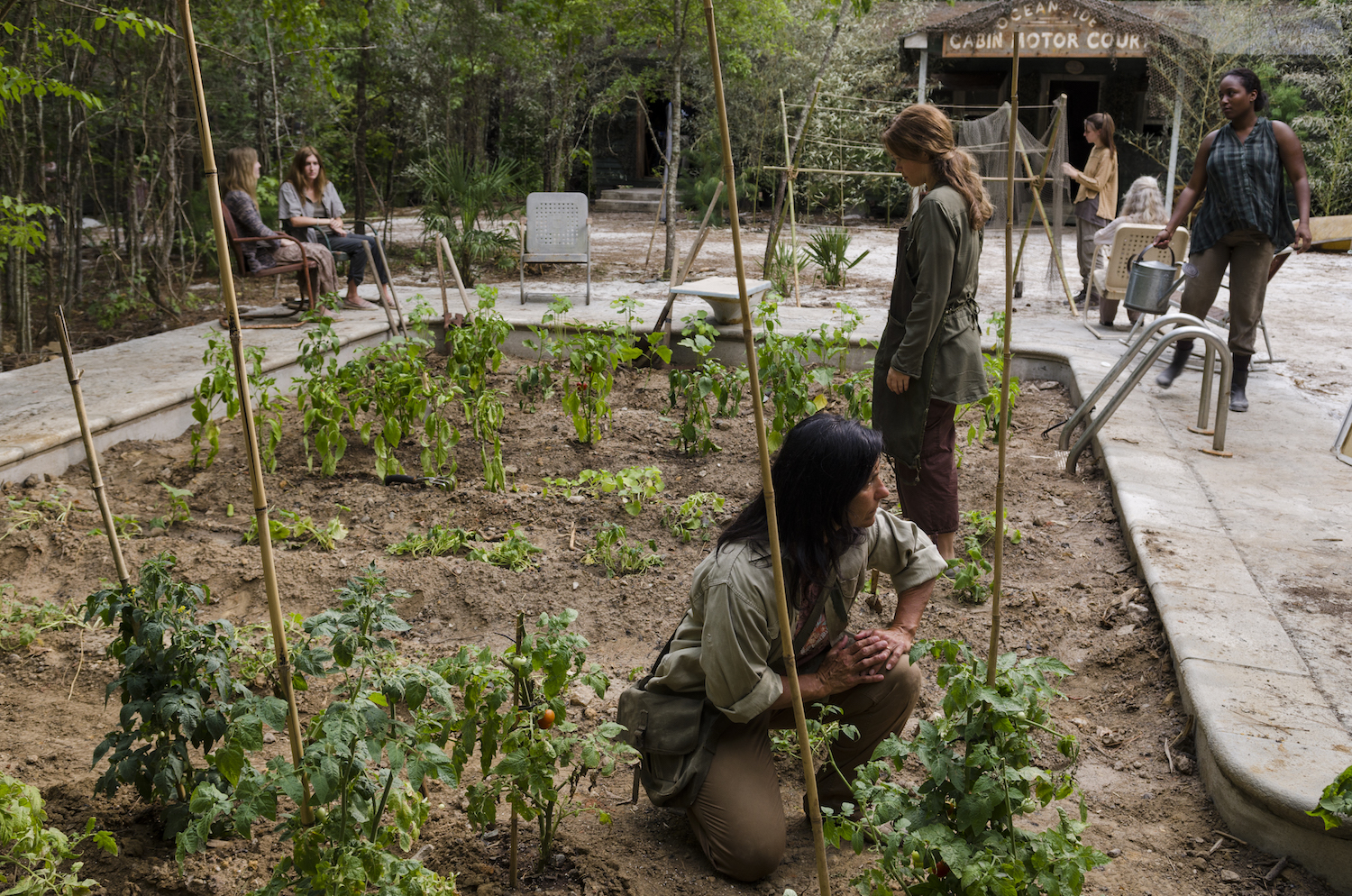
Food and water
Besides shelter, a community needs a reliable food and water supply to survive.
"Those are absolutely fundamental," said Vance Holliday, an archaeologist in the School of Anthropology and Department of Geosciences at the University of Arizona."Even if it's just a few people, you still have to have access to [food and water], and you have to have a distribution system of some kind."
And not only do they need to learn how to produce and share the food and water, but there has to be a way of managing fluctuations or risks, Hunt said.
Say a neighboring community comes by and raids an entire field of corn. (That was a definite possibility in early civilizations, or in the zombie-filled world of "The Walking Dead.") Does the community have enough food to get by until the corn can be replaced? [Doom and Gloom: Top 10 Post-Apocalyptic Worlds]
"You've got to think about making it through the worst circumstances," Hunt said.
Shared goals
Teamwork makes the dream work — for real.
"The communities that own something together are going to do better than those that don't have a sense of sharedness," said Carl Lipo, an archaeologist in the Department of Anthropology at Binghamton University.
Lipo is also an expert in the human history of Easter Island, where early communities spent decades at a time building hundreds of massive stone statues. "Those statues were the key to survival, because [building them] brought communities together," Lipo said.
Once a community is driven toward a shared goal, the people will also be more inclined to help one another as individuals, too.
In today's communities, sports teams serve a similar purpose as the Easter Island statues. When someone meets a stranger who cheers for the same football team as they do, they're both more likely to be interested in one another's well-being than if they don't have anything in common. That's better for the community in the long run.
Now, the communities of "The Walking Dead" may not be ready to start their own sports teams yet, but they did at least try to work together to repair a bridge. Baby steps.
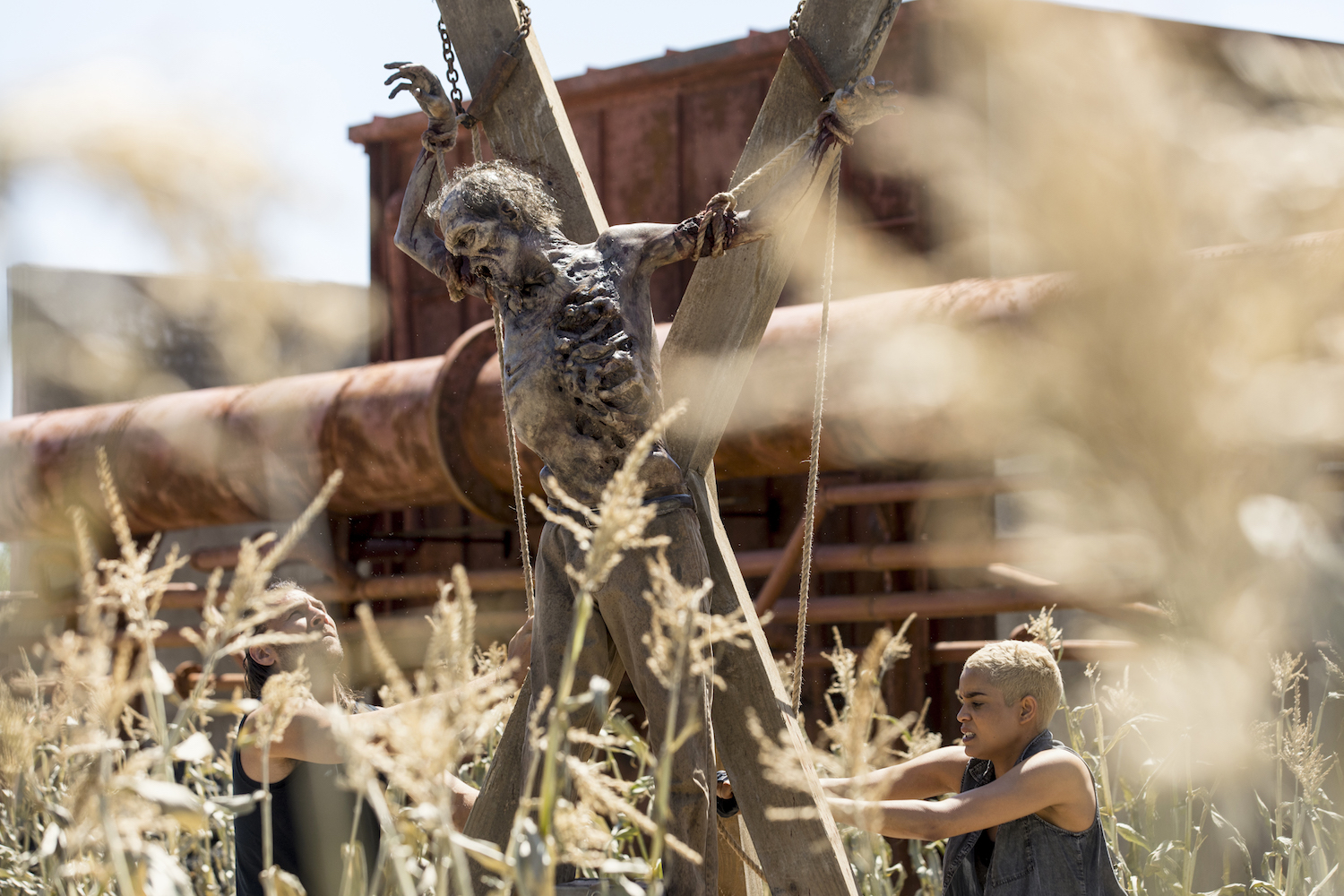
Fair consequences
One of the more challenging aspects of building and sustaining a civilization is deciding on punishment for intolerable actions. More specifically, what to do with the cheaters, because civilization can't sustain itself if it's based on a "winner takes all" structure.
"People are always going to try to get something for nothing," Lipo said. "How do you make that work so that everyone sees that it costs too much to cheat, without it being totalitarian?"
And, who decides on the punishments?
"That's where a lot of conflict will come from," Holliday said. The characters on "The Walking Dead" have a bit of an advantage though, he said, because they "have the knowledge of thousands of years of history and an infinite variety of political systems."
Indeed, in the beginning of this season, Michonne, one of the survivors, uses her knowledge of past political structures to draft a charter for the communities to adhere to. Whether the communities can agree to uphold the charter remains to be seen.
Document and share knowledge
All of the experts Live Science spoke with mentioned the importance of inheriting information and sharing knowledge.
"One of the challenges with a post-apocalyptic world is, how do you retain knowledge in your community, so you can remember conditions that may not have taken place in recent memory?" Lipo said.
People who were born after the apocalypse, like Judith and Hershel in "The Walking Dead," have no knowledge of what life was like prior to the apocalypse and therefore no vision of what life could be like in the future if that knowledge isn't shared.
In a post zombie-apocalypse civilization, people would need to quickly develop a way to retain the knowledge they have and record it with limited technology, Lipo said.
For the Rapa Nui people of Easter Island and in several European cultures, storytelling was an effective way to share important information across generations.
"We inherit a lot of information that is shared," Hunt said. Crucial information, like what to eat, how to get food or maybe something like where the zombies like to hide. "We learn those things so that we don't independently experiment," he said.
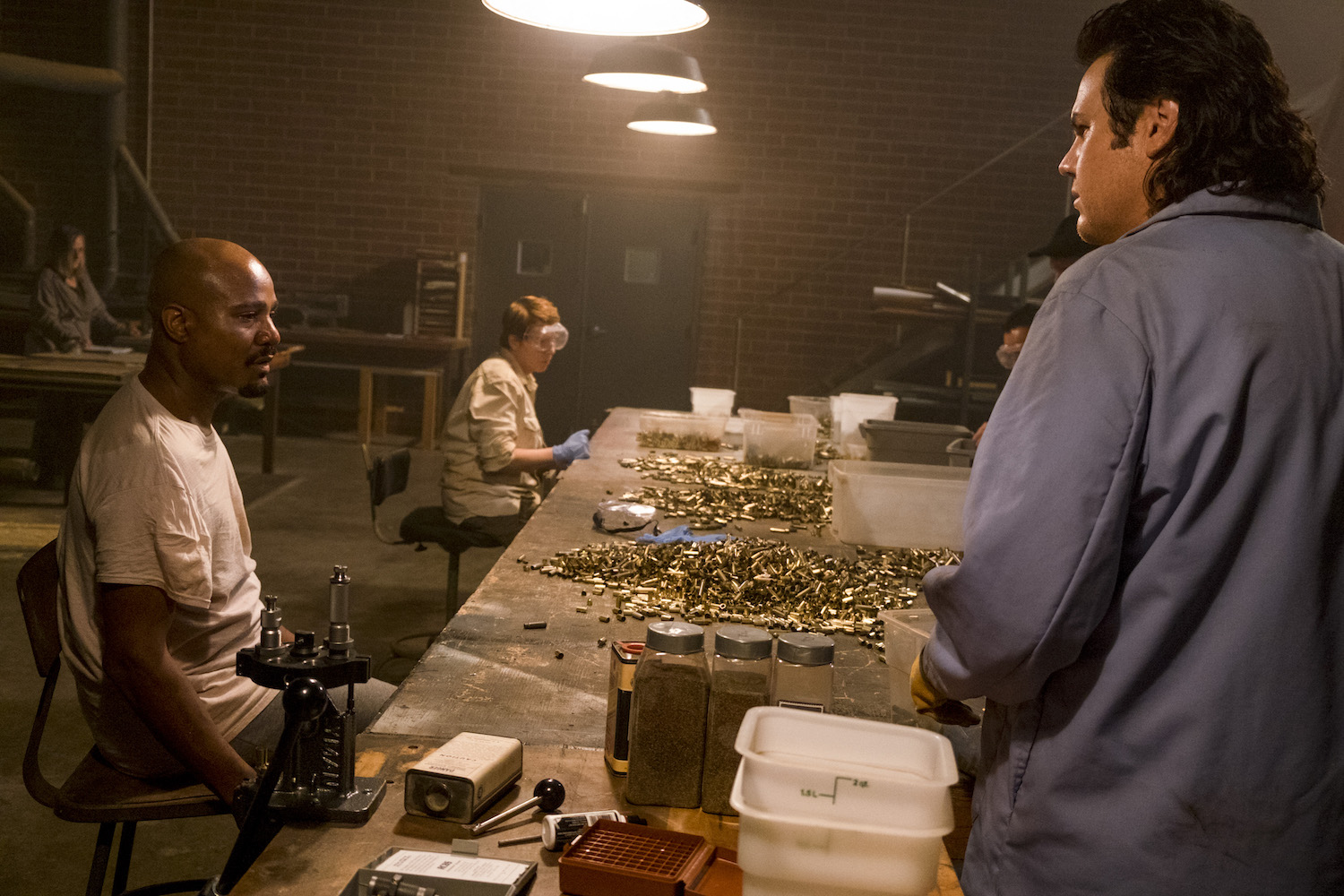
Technology and manufacturing
In today's world, there are retail stores for nearly everything you could ever want or need. But that wouldn't be the case in a zombie apocalypse or in an early civilization.
"Someone has to make the clothing, tools, weapons," Holliday said. "There needs to be some sort of manufacturing of just basic commodities."
And people will need to somehow find the resources to produce those commodities, he added. "Even if you're making stone tools, you've got to go find the right kind of materials."
Technology is important at any level, Hunt said. Even rudimentary tools like the stone ax changed the world when they were first invented.
But the survivors of "The Walking Dead" are at an advantage over early civilizations, once again, because they've seen what technology is capable of. If the communities can foster a culture of continued technological development, they'll be more likely to have a sustainable civilization.
Health care
Perhaps the most daunting enemies of ancient civilizations were the diseases they contracted from outsiders. The Rapa Nui people of Easter Island were doing just fine for 500 years until the Europeans arrived and brought deadly diseases with them, Lipo said. European diseases decimated the population of Easter Island and the early civilizations of North America.
Having public health strategies for minimizing contact with infected others would be critical to the success of a civilization rising during the zombie apocalypse.
"Ideally, you would want a system of health care," Holliday said. "You've got dead people all over the place, and that's a huge, huge health concern."
Because it's a modern-day apocalypse, the characters in "The Walking Dead" probably have a very basic idea of how to take care of themselves. But the average person's common-sense notion of health is still pretty poor, Lipo said. Specialized care would be critical for survival.
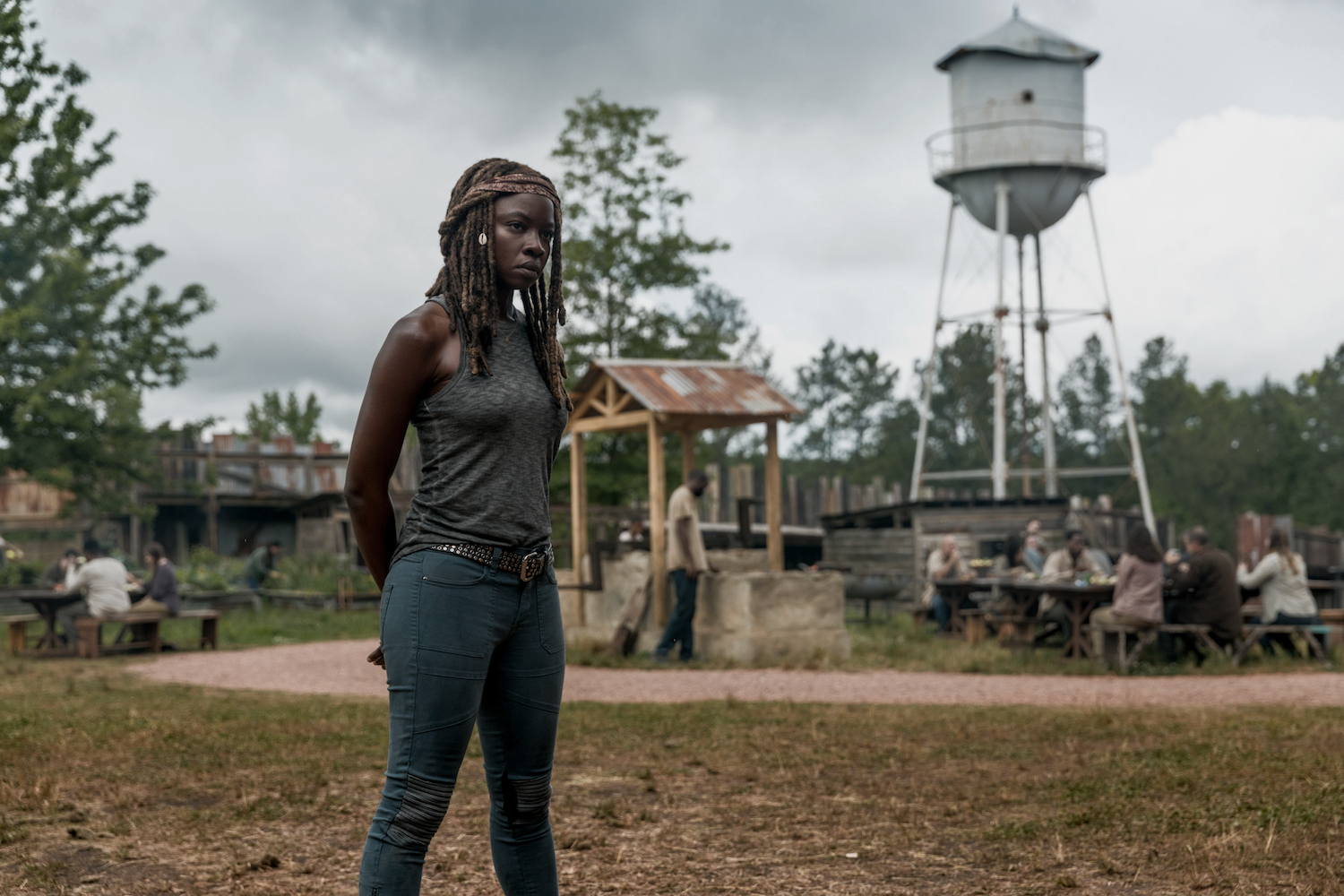
Trade
The communities in "The Walking Dead" aren't isolated from one another, and that means they can help each other succeed if they're willing to trade and cooperate.
The biggest problem in building civilizations is when the lack of sharing resources creates divisions and then forces communities to compete with one another, Lipo said. "That's exactly the kind of stuff that will break us down because that's when we no longer share values as a community."
Sharing with other communities and depending on one another for help is a way of minimizing risks and avoiding competition, Hunt said. "That is [all] part of community formation."
If one community produces far more potatoes than another, but the other community has more livestock, they could significantly benefit one another if they work out a mutually beneficial trade.
"Having contact with other people who are facing independent risks is a really good thing," Hunt said. "That's a key to survival."
Catch "The Walking Dead," now in its ninth season, on Sundays at 9 p.m. EST/8 p.m. CST on AMC.
Originally published on Live Science.
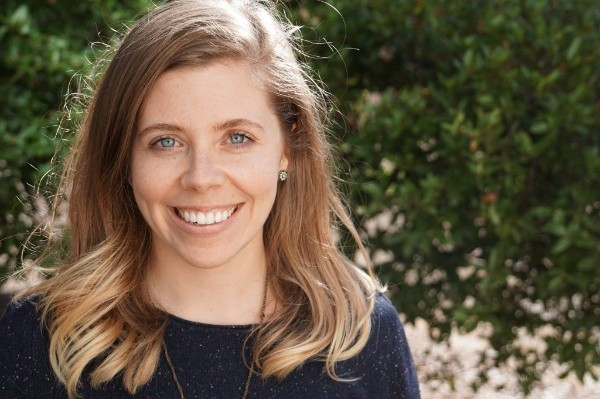
Kimberly has a bachelor's degree in marine biology from Texas A&M University, a master's degree in biology from Southeastern Louisiana University and a graduate certificate in science communication from the University of California, Santa Cruz. She is a former reference editor for Live Science and Space.com. Her work has appeared in Inside Science, News from Science, the San Jose Mercury and others. Her favorite stories include those about animals and obscurities. A Texas native, Kim now lives in a California redwood forest.










